For 20 years, there have been some faint voices discussing demographic issues that the audiophile hobby has, mainly being the fact that the hobby is nearly all-male and predominantly supported by Baby Boomers who are now aged into their 70s. Much like the Oldies Station on the FM radio plays the music of the 1970s, 1980s and even some popular 1990s fare, their demographic has gotten notably younger. The whole editorial premise of FutureAudiophile.com is smoothing the transition between the way things have always been, dating back to the late 1960s, in the audiophile hobby, to what things will be like in the coming years when original audiophiles realize that they might not want to always invest $20,000 in a stereo preamp as the next step in their journey. Many older audiophiles are selling off (or auctioning off) their fully-realized audiophile systems for powerful but less expensive systems. That’s not because they don’t still love the hobby, but the practice of being an audiophile does require a lot of time, space and especially money.
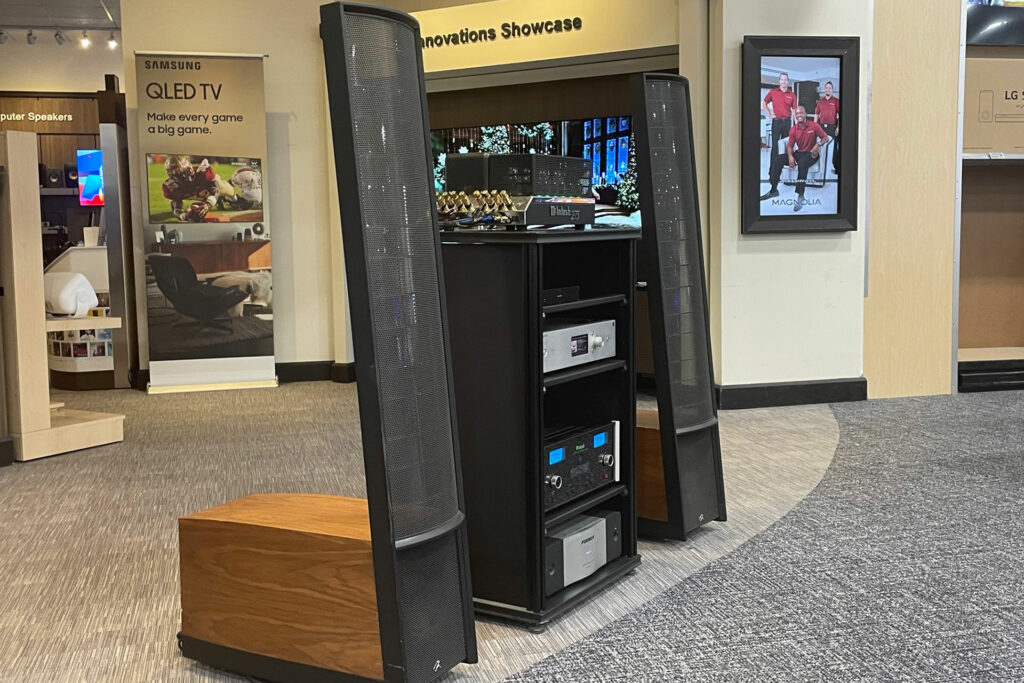
Audiophile dealers or audiophile salons have always been a big part of the way that the hobby has grown over the past 50 or so years. Saturday afternoon at the stereo store was often a place of congregation for audiophiles, dating back decades. New components were installed and played with a unique urgency. Intense conversations were often had between audiophile customers, which built meaningful levels of community. Audiophile dreams were born and, many times, real money was spent. Today, good audiophile stores are sadly harder and harder to find. The average age of the owner of these stores is also getting a lot closer to that of “retirement,” often without a clear succession plan that would pass off these hubs of all-things-audiophile to a younger generation. In some cases, the sons of the almost exclusively male-owned audio stores have taken over. Other audiophile retail locations have closed with their leaders’ departures. Much like second-generation Chinese-Americans, who often are fantastic students who attend topnotch universities, don’t come back to run their parent’s restaurant with a PhD in Electrical Engineering from MIT, many younger people are passing up the often lucrative position of running (or starting new) audiophile stores. Much like Boeing needs younger and more diverse people to help them make Dreamliners (as well as to want to actually fly them), the audiophile business needs both younger and more diverse people to want to invest in an audiophile system, as well as run the retailers that so eloquently sell them.

Should Floundering, Old-school Audiophile Stores Stay in Business?
A hardcore economist might suggest that a little economic Darwinism is in order for this argument. From a tough guy’s perspective, if a stereo store can’t stay in business, then perhaps it shouldn’t be in business. From a different outlook, is saving a few bucks on tax or buying online worth not having a local dealer that floors well-respected gear? That’s a high price to pay in order to save a few bucks. Local dealers are helpful with trade-ins. They can facilitate repairs (and often loaners) and other setup and/or service. For audiophiles looking for the absolute best in music playback system performance, travel has become more and more part of the hobby, and that is logistically tough and always costly. Without local audio dealers, the need to travel is even stronger.
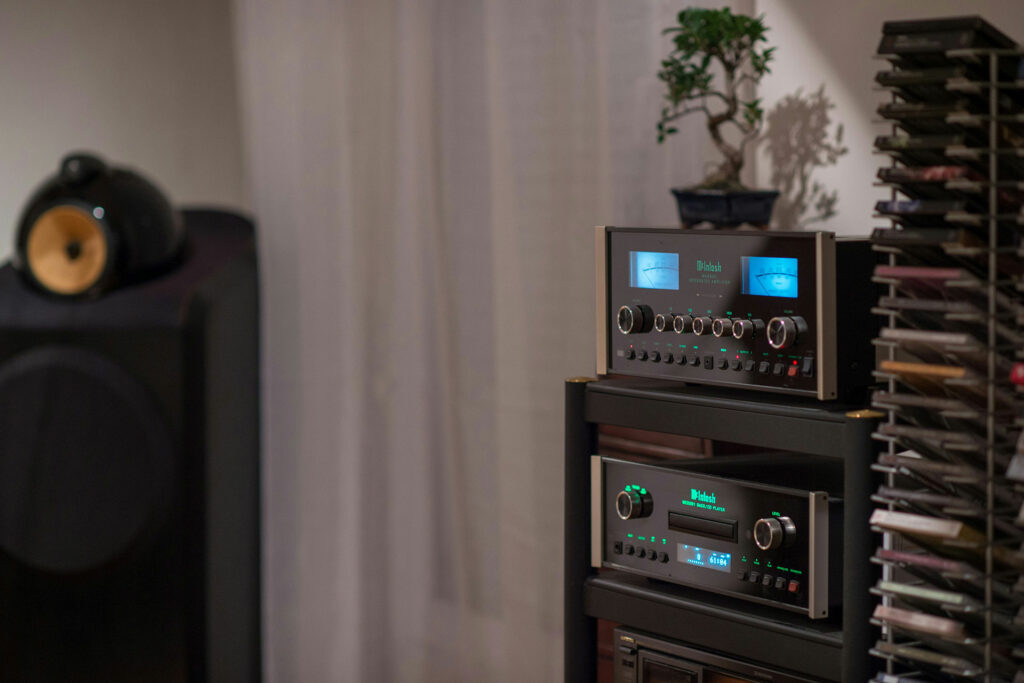
Build It and They Will Come Has Never Worked in the Audiophile World, Ever!
The concept of building the world’s most fantastic, over-the-top showroom with tons of overhead is a concept that has been tested in the audiophile world for decades now. And every time, it has pretty much been a failure. Overhead is a killer, and while just the concept of having each and every product of many excellent brands is tempting for audiophiles who want to sample everything that the hobby has to offer, it is also stunningly unprofitable.
Christopher Hansen Ltd. in Beverly Hills (where I cut my teeth in the early 1990s) was one of the all-time best uber-high-end audiophile stores. When the old Rolls Royce building closed on Olympic Boulevard, Hansen was able to take Indonesian investment money and build the most gorgeous, elegant and well-stocked audiophile store in America. By 1994, even with a pair of the new $67,000 (yes, they were that “cheap” back then) Wilson Audio Grand SLAMMs on display, the store closed its doors.
SoundEx just outside of Philadelphia was also one of the top-grossing dealers in America, as they could offer the same healthy discount as Manhattan audiophile stores, but also save consumers almost 10 percent savings in tax. When SoundEx decided in the mid-1990s to move from a rundown home jam-packed with any and every A-list brand in audio over to a gleamingly new, 26 demo-room building that found concepts like the newly-launched (at the time) “plasma TVs” unlikely to sell, but had every possible cost-no-object audiophile component and system on display. They went out of business in short order after opening their beautiful but foolish new retail location, as they didn’t understand their place in the audiophile retail market, and were stubbornly unwilling to pivot after making a massive logistic mistake.
Very few AV retailers are like Definitive Audio in Seattle. Their Bellevue, Washington location is the closest example to a build-it-and-they-will-come success story. Historically, under its past management, Definitive Audio was not only the nation’s best specialty AV retailer, but it was exceedingly well-run and well-managed in ways that other audiophile stores couldn’t dream of. They had high overhead, but were very professional in their management acumen. They were also diversified into other industry categories well beyond their strong audiophile roots. Definitive Audio was an audiophile powerhouse, but they also did far more business in Crestron and other custom installation. They also have a commercial division for tech industry installations. They had a maritime division and, considering who one of the big four companies in their area is (Amazon, Starbucks, Microsoft and Boeing), they also had an aviation division. This level of diversity allowed them success when pretty much everybody else who tried to go big, failed. The failure of Tweeter is likely the poison that keeps Definitive from expanding to a national chain, but if they ever get ambitious, there are many major market cities that would thrive with a Definitive location.
Can an Audiophile Salon Survive Without Doing Some Custom Installation?
Most customers aren’t audiophiles. Most don’t care about our quirky hobby or want a system that you and I would kill for. More than likely, they want good-looking 4K UHD television and the associated gear to make their music, movies and streaming result in a great experience. Smart home systems are appealing, too, but are very labor-intensive and often require sophisticated programming, contractor’s licenses, and more.
Can an audiophile dealer make money selling video monitors and Sonos gear that come very light on profit margin? Some do. Accessories also help boost overall profit margins, but the return to low overhead is key. Selling audiophile components is an easier path to profit and success, but having a good CI (custom installer) division is a good way to diversify an audiophile retailer, as many of the top audiophile salons have learned over the years.
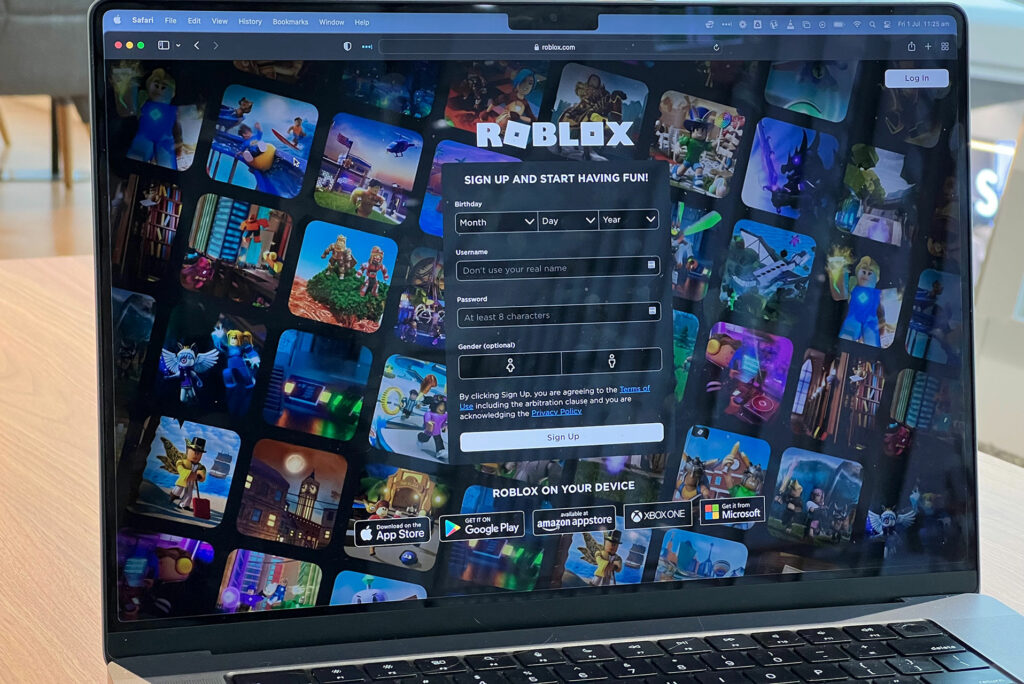
Will an Audiophile Store Ever Get the Memo About Video Gaming?
The video game industry is bigger than movies and music COMBINED today, and will likely double both of them by the end of the next five years. Kids flock to ROBLOX, Fortnite and other gaming franchises, and spend on gaming PCs, specially-made optical keyboards, and ultra-fast clicking $300 gaming mice, as well as large, fast refresh-rate monitors. They are young, enthusiastic and willing to spend to get the Nth degree of performance. They also love music, yet there isn’t one dealer that we know of in the audiophile world that is selling car simulators, airplane simulators, video gaming suites or has anything like that on display at their showrooms. Perhaps they need to take a brief look at the median age of their client and ask if they are positioned for long-term success, or if is there a new way to bring in people who might spend on tech, including a starter audiophile system?
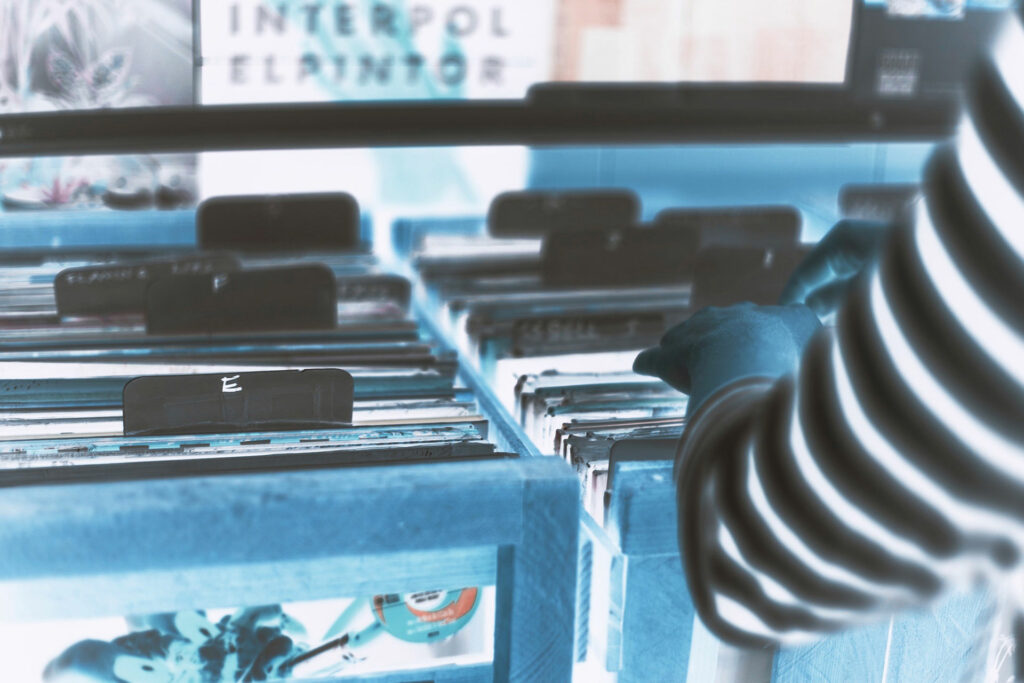
Is an AV Retailer a Good Business to Buy Today?
A respectable AV dealer in a solid location with its overhead under control can be a wonderful investment, and a business that can reasonably kick off a few millions of dollars of revenue yearly. Online tech-based businesses tend to sell for roughly two times top-line revenue. Retailers don’t get such a great multiple, thus an audio store can be had for a song by a savvy younger investor with a little creative financing.
One Florida-based store that would be considered a safe bet for the “all-time best store” list went through some internal issues and, out of a CT divorce lawyer, it sold for $40,000 total. That dealer went on to be a juggernaut in its South Florida market again today. Ultimately, this retailer kept true to their audiophile roots with a very serious audiophile room with bleeding-edge products but they also were fully entrenched in custom installation as Crestron, Control4 and Savant dealers. If you have money and want cool toys, they have you covered, and they’ve thrived for decades since that low-cost acquisition.
Owners of today’s best audiophile salons are often looking for that “right guy” to come in and ultimately take over. Price and terms often aren’t the driving force in a seller’s motivation so much as continuing to service the client base, community and keeping the party going. The profit margins in the audiophile world can be generous (especially when you put your support behind your key brand partners, who often reward their best dealers with even better pricing, terms and margins when you sell through on their products successfully). Overhead is a bitch and should be carefully managed. Labor costs are higher in every corner of the United States (globally, too), which impacts costs. Insurance isn’t any less money in a recently inflationary economy, either. High interest rates also impact the cost of flooring demo products. With that said, many audiophile companies will help with beyond-lenient payment terms and generous profit margins. In the right situation, there is a lot of money to be made from one of these small businesses without a lot of grief. Moreover, playing with stereos is something that we do for fun. Making a solid six-figure living in the process is a pretty juicy perk that some will take advantage of in the coming years. Now is the time to start having said conversations, however.
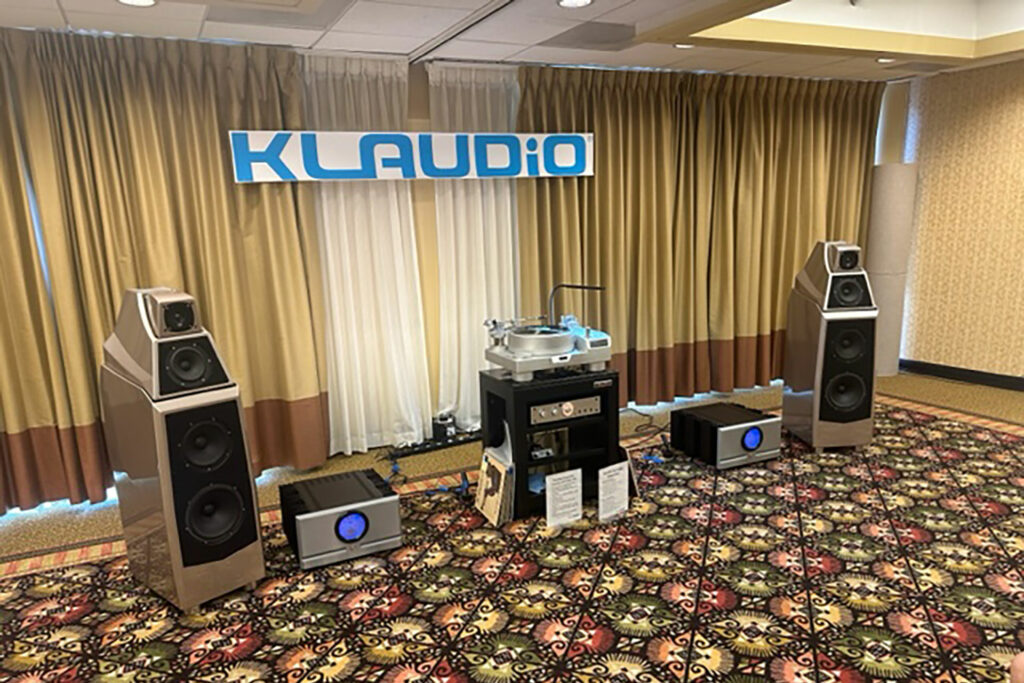
Some Parting Thoughts on AV Retailers for the Future…
The importance of having one or more good audiophile dealers near you is high. As a hobbyist, it is hard to justify traveling to get exposure to more and more exotic audiophile gear. This is why U.S.-based shows are so popular with some audiophiles. You can travel to AXPONA (Chicago), Capital Audiofest (Maryland – not far from Washington, D.C.) the Tampa show, and Pacific Audiofest (Seattle), as well as a new show in Dallas. There is T.H.E. Show, which is pretty small, but near the John Wayne Airport in Orange County, California. There is even a tiny show near Oakland, and these are only some of the audiophile events in a current year. Getting in a car, train or airplane can give the audiophile great exposure to new and exciting audiophile products. With that said, coming home to a dealer who has a vested interest in your audiophile system and overall system experience is a true luxury. Consumers need to know how to support said dealers, and dealers need to return the favor. They days of “pulling a Pretty Woman,” as some well-known audiophile stores in New York City became famous for in the 1980s, isn’t going to cut it today. It shouldn’t have even been a thing in Manhattan (or anywhere) in the past, but that’s water under the bridge at this point. The audiophile hobby needs to keep working on being more and more inclusive if it wants to survive the pending demographic sea change that is mere years away from reality.
An audiophile retail store is like a good bookstore, but a far better, more profitable business.Retailers that sell books are few and far between because of Amazon, but when you find a good one, you understand the value. Record stores have the same effect on the community, but suffer from the need for high-volume sales because of the low per-sale dollar volume and often low profit margins on books or music. Audiophile gear doesn’t suffer from that problem, as it has ample profit margin and, we hope, a loyal, willing customer base. Diversifying the audiophile retailer business model to include other, more attainable or aspirational purchases like collectable vinyl, well-curated coffee table books and/or a collection of modern high-performance headphones can hedge against the inflationary pressure that many varied businesses face today.
Most older audiophile store owners suffer from the “you can’t teach an old dog new tricks” problem, but the truth is that, in a few months, a savvy and motivated new owner can start by fixing an audiophile store’s website. I’ve helped at least a dozen AV dealers get to (or close to) number one organically (locally) on Google, as that SEO challenge isn’t that insanely hard. Creating an email list for the clients in a modern CRM like Zoho or Salesforce.com might make some septuagenarians’ heads explode, but it isn’t really that hard, and then you can communicate with your current clients in ways that easily pay the monthly bills. Lowering overhead is the longer-term trick, which isn’t insurmountable. Commercial real estate is one of the most beat-up categories in the economy today. Walk up and down the Third Street Promenade in Santa Monica and see that roughly 30 to 40 percent of the higher-square-foot-cost retail locations are notably empty. That goes for other retail spots not in Santa Monica tourist traps, thus you are likely going to be able to either renegotiate one’s current lease for a longer-term renewal, or move to a new location that likely comes with some needed “build-out” money amortized into your next five-year lease costs that could help a new owner create a retail environment that is truly in tune with the future and the needs of the future audiophile (see what I did there?)…
In the end, there are a few wonderful business opportunities sitting out there for somebody who might be going through a midlife crisis, or for someone who loves music and technology who wants to make their passion into their living. Even if a dozen soon-to-be entrepreneurs learned of said opportunities and acted on them, the hobby (at least in this country) would be much better off as a business. There is a solid six-figure payday out there for anybody who’s interested. There are people like me (and many others) who are willing to help as consultants. There are countless audiophile brands, many of which we would all consider A-List, willing to open you as a dealer. The world is your oyster, if you are interested…
Tell us about your experience with your local retailer? Can you think of one near you that you (or somebody) should buy? Would you invest in an audio store or is this a crazy idea? Comment below. We will approve comments as they come in, as all comments are moderated on FutureAudiophile.com because of trolls.




Your photo of the McIntosh w/ Martin Logan sitting in the middle of the entrance made me laugh, I saw an identical setup at a nearby Best Buy a few years ago, the system was playing a streaming sourced hip-hop track, all overdriven bass and full-frequency distortion . . . and the speakers lacked any boundary reinforcement. So what do you think this system sounded like? I’ve been a McIntosh owner for 43 years and it made me never, ever want to hear that particular gear again. The people at Magnolia are CLEARLY self-important idiots, lacking a single clue as to how you properly set up and demo this stuff. Another store more recently had the KEF Blade 2 Meta setup with McIntosh again, this time the room was so-so, although the speakers were rather close to the rear wall. What did these clowns do wrong you ask? The salesman had set up his own ear-tuned custom EQ, based on no actual measurements, and he successfully made those human-sized speakers sound like an overdriven Sonos box about the size of a car battery.
Since the existence of the internet high end audio stores are quickly becoming a thing of the past. Human nature compels people to “save a buck”. They will use the local audio stores to preview equipment and pick the brain of the experienced employees before shamelessly going home to shop those products for better deals on the internet.
Jeff,
That’s a little dark of an outlook isn’t it?
If you’re thinking of buy a store, I fit the above profile almost too well. We do a brisk business in commercial, some elaborate home theater and, of course audio–mostly multi-channel. Klipsch, Paradigm, Sony ES, Denon, Marantz, are some of the brands. Company is a member of ProSource.
Excellent article. I am a fifty-year (1975) audio dealer well-described in the last parts of the article and struggling to stay in business. Much food for thought while I am doing some beginning action to survive. Also I am more middle range, not high end so less big dollar transactions. On a separate note I was a bit ruffled by a previous article suggesting that the standard selling pricing was 20% off retail. Little doubt that if that had applied to my business we would have been long gone. John Dorsey
I am hearing about more than one audiophile store doing RECORD business in 2024.
It is always best to try to sell a business on an up-swing. 🙂
As usual, it’s a great article. Thank you very much. Lots of changes on the way. Keep up the great work.
Jerry, I think you’ve found your calling.
Del Colliano’s Hi-Fi.
It does have a ring to it.
It would be a lot easier than selling some company’s ads. 🙂
I’ve always found the stores in the area (SE PA) tend to not focus on the entry level products and customers enough who, over the years, would have developed into higher end customers. Many have gone the way of the Dodo as a result.
If I were starting a store in ‘24 I’d have a strong selection of headphones and headphone amps as that is the new entry-level.
Before I left – we took care of those needs at Bryn Mawr Stereo and Sassafras (ironically in Bryn Mawr PA)…
Then I left for LA and sold mostly expensive stuff as you described in beverly hills 🙂
In the post covid world, the idea of auditioning personal products that have been on someone else’s head is a difficult concept…and earbuds, fugeddaboutit.
Jerry, your article is good except for one thing. As the recent AXPONA demonstrated, there are thousands of new, great audiophile products out there. Unfortunately, it’s impossible for a brick-and-mortar store today make many of these to-die-for products available to the store visitor. Rather, the customer today will have to make do with what the retailer has or can get. This list is usually very limited. If you even question or ask about other brands, the retailer will tend to show you the door. It’s the horrible state of the audiophile environment today. So what can a local retailer do to survive? Answer: Do home installation (with their products only). Home installation usually runs counter to needs of the true audiophile.
I was in the audio industry for nearly 30 years and I closed my brick and mortar store in 2005. It seems that the time for these stores has passed.
We just celebrated 51 years of selling audio and video equipment. We have survived by giving our customers sound advice, taking care of them when they had a problem, and refusing to spin the ultra high end requirement to get great sound. I have heard so many high end systems at stores and shows that just don’t sound like live music. And in New Orleans we have so much live music. In fact, I saw Mic Jagger and The Rolling Stones live Thursday, Neil Young and many more at the Jazz Fest.
I am lucky that my son followed in my footsteps and opened his own store, and is doing great in Denver and my daughter was regional sales manager for Sumiko, B&W, Audio Research, Sonus Farber and more. But they are busy doing their own thing and can’t take over my store.
So, anyone who loves audio and giant screen TVs, contact me.
One of the ways I survived was Advertising, in daily newspaper, radio and regular broadcast TV. Most audio stores don’t advertise at all. As my own spokesman I get recognized all the time. My brand name and reputation is well known.
Wire companies have to stop saying you need to spend 30% of the cost of a speaker. Audiophile brands need to attract more poor customers, not billionaires. And we need to start explaining technology the way we used too. Magico runs an ad with a name, no phone, no email nothing. Pass Labs says enjoy the experience. What’s inside one model that makes it twice and expensive as another and why does that stuff make it sound better.
I am not an ultra high end audio store. My brands have included Sony ES and lots of TVs, Parasound, Elac, Polk, Def Tech, GoldenEar, B&W, Klipsch, Marantz, Deion, B&K, Pioneer Elite, SVS, and many more of the years. 30,000 cars pass my store every day. I am across the street from Louisiana’s biggest mall. After Hurricane Katrina I had 3 stores and 30 employees.
This type of post is pointless if you’re bragging about your store but don’t tell us the name or the location of your store.
There are many stores that you could buy for close to nothing.
If you want to know more – contact me.
When companies sell, often an NDA is required.
I wasn’t looking to buy his store, I was looking to visit and buy products.
One problem is it’s a snobby hobby. If a store doesn’t sell a product they knock it. I see online YouTube videos where they only talk about mega expensive equipment. Just because it’s expensive doesn’t make it great. Also if there is a local dealer you spend a little time with and buy out of state to save money why not. You can save tax too. You can buy a high end watch out of state why not. Nobody owes anybody anything. Once you know what you want why not shop around. I’m not paying retail for a car. I don’t see people knocking the walls down for $10,000 amplifiers.
If you do the “Buy Krell – Levinson sucks…” pitch you are a loser. Stone cold – loser. That pitch never worked and still doesn’t.
Some dealers ONLY want to sell to the highest end clients and that’s perfectly fine for them.
I would note how much more foot traffic at audiophile shows rooms like Orchard Audio, SVS, Amped America (ADCOM) and Magnepan get versus the million dollar rooms. People like the ideas of being able to actually OWNING some of the gear someday and $30,000 preamps make that pretty hard to dream of for most.
Thank you for this great article.
As a very small niche high-end audio dealer in SLC UT I can say the industry has changed dramatically over the last two decades — perhaps even longer. It is very difficult to find customers who understand what it really takes to build a truly musical system. The audio components or pieces are part of the equation; the room and room boundaries also play an integral role, and then of course working with someone with the experience to recommend products you will like based on your music collection or musical taste. Then of course you have long lead times (sometimes six months or longer) with many of the products I sell as they are all hand made and only build to order. Certainly, there are many other variables at play, these three areas are key and really distinguish a well-designed and musical $50K system vs one that cost significantly more and was just pieced together by a user because an audio component was on sale or is a system that was put together based on “getting the best deal.” Yes, the profit margins for dealers are getting slimmer, due in part to increased competition but really because of people who buy and sell pieces online because they are always after the “best deal” not the best advice or best system designer. Not everyone can do this and that is where great dealers come into play … and this is always forgotten.
I would not sell my business for any amount of money. I do it because I love helping people find the soul of their music. Granted, I am a tiny dealer … doing four or five systems a year because I need to get to know my clients, their environment, the room (s) they listen in, and discover what a musical system means to them. It is then it’s my job to source the best audio components to achieve the most favorable result. As Rob Dickinson of Singer Vehicle Design says, “everything is important” and the same is true with music systems.
Given my desire, fascination, and love of finding only the very best audio components made, I have tried nearly every audio component from the most affordable to the most expensive esoteric products made using rare earth materials and I have always found the best sounding components are those with a very well thought yet simple circuit that does as little to the audio signal as possible. There is a magic that comes to life when you play a properly set up Shindo system that is simply unmatched unless you go back even further to components that are no longer made. Audio systems that literally transform you to the venue is what I strive for and the reaction of a client when he or she really hears their favorite album for the first time is my continual drive.
email: bespokeaudiogroup@outlook.com.